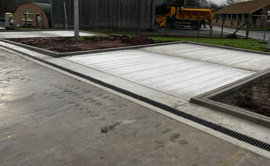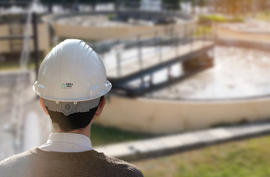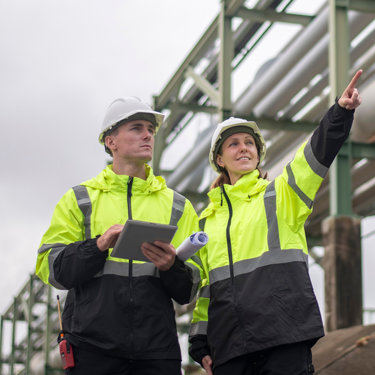The introduction of E10 – is your infrastructure fit for greener fuels?
Published: 1 March 2021
In February, the Government announced the introduction of E10 fuel across the country from September 2021.
E10 biofuel, an eco-friendly combination of petrol and renewable ethanol, will give drivers a greener option at the petrol pump – and deliver a swift leap forward on the UK’s goal of reaching net zero emissions by 2050.
According to a statement from the Department for Transport, the move will cut transport CO2 emissions by 750,000 tonnes per year. And as motorists make the slow transition to electric vehicles, E10 will fast-track responsible fuel alternatives for the millions of petrol-powered cars currently on our roads.
It’s undoubtedly a positive step for the planet, but E10’s higher concentration of ethanol could have costly repercussions for your tanks, linings, and pipework. Mark Griffiths, Head of Business Development at Adler and Allan, explains how a review of your critical infrastructure and maintenance schedules will prepare your site for September’s E10 switch.
The effects of E10 on your fuel storage infrastructure
E10 biofuel is a mixture of petrol and ethanol made from products including low-grade grains, sugars, and waste wood. Its green credentials come from the biofuel’s 10% renewable ethanol content – double that of the standard 5% (E5) blends presently sold throughout the UK.
While the average driver may spot the difference on the forecourt come September, E10 fuel is by no means new – and industry insiders have been expecting the shift for some years. Globally, E10 blends have been implemented in many European countries, Australia and the US and used to gauge new car emissions and performance since 2016.
We’re already supporting a number of proactive oil companies, supermarkets, and independent groups to upgrade their fuel management and maintenance systems in line with the E10 transfer. With the September deadline now set, however, the countdown is on for all affected businesses to mitigate environmental risks and possible damage to essential assets. These might include:
- Contaminated fuel write-offs. By nature, E10 produces an even more potent cleaning effect on tank internal walls than E5 petrol. If rust is already present in your tanks, it’s likely to find its way into fuel stores following your initial E10 download, risking the quality of your reserves.
- Containment issues. Are your gaskets and seals resistant to E10? If fittings on tank lids and pipework aren’t made of appropriate material, you could fall victim to hazardous leakages, spills and pollution events.
- Tank lining failures. While steel containers should maintain their integrity while housing E10, lined tanks may not be up to the job. Lining resins could be steadily eroded by E10’s increased ethanol levels, making tank failure a possibility.
Expert advice to protect your assets
Working with an experienced environmental risk consultant can safeguard your fuel storage network against E10 threats. A comprehensive survey of your estate and maintenance programme will highlight potential hazards and provide practical solutions to lessen the impact of the change.
Your range of fuel management options could cover:
- Fuel uplifts and transfers to prepare for E10 fulfilment
- Tank or camera inspections to assess the condition of your assets and lining systems, followed by specialist cleaning and repair if required
- Tank relining operations, using ethanol-resistant resins
- Replacement of pipework, gaskets, and fixtures with robust, ethanol-resilient components
A trusted partner will talk you through workable scenarios to suit your budget and business needs – and create a customised, cost-effective plan to help prevent the penalties of non-compliance. Call us to arrange an infrastructure audit or to discuss updates to your fuel management routine.
More from our Knowledge Hub
 Case study
Case studyDecommissioning and redeveloping a mechanical transport fuel installation at Sennybridge Training Area
 News
NewsTwo prestigious wins at Water Industry Awards and Women in Utilities Awards 2025
 News
NewsCelebrating and supporting our veterans at the Forces in Business Awards 2025
 Insights
InsightsRebuilding trust in water: Interim recommendations from the Independent Water Commission
Environmental compliance today, creating a sustainable tomorrow
Helping you reduce risk to the environment and your operation by managing assets compliantly while achieving commercial, ESG, and net-zero goals.
Contact our experts
